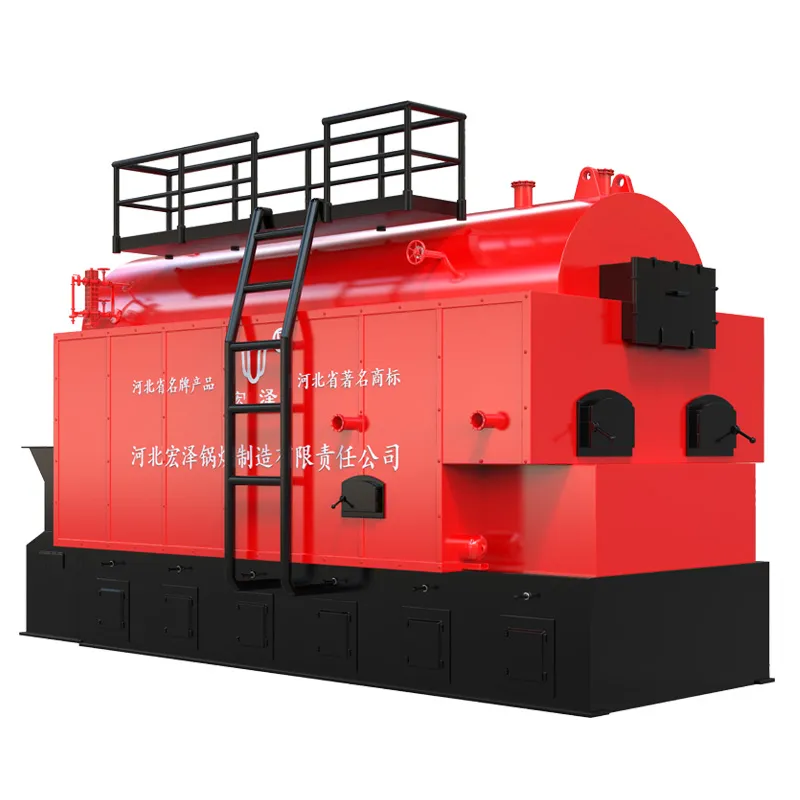
Kas . 26, 2024 01:16 Back to list
Comparing Thermal Oil Boilers and Steam Boilers for Efficient Heat Transfer Solutions
Thermal Oil Boilers vs. Steam Boilers A Comprehensive Comparison
In industrial applications, the choice between thermal oil boilers and steam boilers is crucial, as it can directly impact efficiency, safety, and overall operational performance. Both systems serve the primary function of providing heat for processes, but they operate differently and are suited for different applications. Understanding the distinctions can help businesses make informed decisions when selecting a heating solution.
Principle of Operation
Thermal oil boilers, also known as hot oil heaters, utilize thermal oils as the heat transfer medium. These oils can withstand high temperatures without converting to vapor, allowing for efficient thermal transfer at high temperatures and low pressures. The system heats the thermal oil in the boiler, which then circulates through a heat exchanger to transfer the heat to the process fluids.
In contrast, steam boilers generate steam by heating water in a sealed vessel. Steam, created from the heated water, is then transported through pipes to various points of use. Steam boilers generally operate at higher pressures, and their efficiency can be impacted by factors such as pressure loss in the steam distribution system and heat loss from the condensate return.
Temperature Range and Efficiency
One of the primary distinctions between thermal oil and steam boilers is the temperature range they can achieve. Thermal oil systems can operate at temperatures up to 400°C (750°F) or more, making them ideal for processes requiring high thermal outputs without the complications of high pressure. In comparison, traditional steam boilers typically operate at a maximum of 200°C (392°F), depending on their design.
The efficiency of both systems also varies. Thermal oil systems tend to be more thermally efficient at high temperatures because they mitigate heat loss associated with steam condensation. Despite this, any inefficiencies in the thermal oil system related to heat exchanger design might affect overall performance. Steam boilers may exhibit excellent efficiency in terms of steam generation, but retarding factors such as steam trap losses and water treatment can significantly diminish performance.
thermal oil boiler vs steam boiler

Safety Considerations
Safety is another critical factor when comparing these boiler systems. Thermal oil being non-flammable can often present a lower safety risk in high-temperature applications. Since the thermal oil operates at atmospheric pressure, the risk of explosions is significantly lower compared to steam systems, where high-pressure conditions present substantial hazards.
However, thermal oil systems are not entirely devoid of risks. Decomposition of thermal oils at excessive temperatures can lead to hazardous fumes and require careful monitoring. Additionally, steam systems can benefit from the inherent self-regulating nature of steam, as pressure and temperature balance naturally.
Applications and Industry Usage
The choice of boiler often hinges on the specific applications they are designed for. Thermal oil boilers are typically used in industries such as petrochemical, food processing, and plastic manufacturing, where consistent high-temperature heat is vital. Their ability to handle a wide range of heat loads without significant pressure requirements makes them versatile choices.
On the other hand, steam boilers find their application predominantly in industries requiring steam for heating, cooking, sterilization, and power generation, such as textiles, pharmaceuticals, and food and beverage industries. The steam produced can also drive turbines in power generation, showcasing their broad utility across various sectors.
Conclusion
Ultimately, the decision between thermal oil boilers and steam boilers should be based on the specific needs of your application. Consider factors such as the required temperature, pressure, safety demands, and operational efficiency. Both systems have unique advantages that cater to different industrial requirements. Assessing these elements thoroughly can lead to the selection of the most effective heating solution for your application, ensuring optimal operational efficiency and meeting safety standards.
-
High-Efficiency Commercial Oil Fired Steam Boiler for Industry
NewsJul.30,2025
-
High-Efficiency Biomass Fired Thermal Oil Boiler Solutions
NewsJul.30,2025
-
High Efficiency Gas Fired Thermal Oil Boiler for Industrial Heating
NewsJul.29,2025
-
High-Efficiency Gas Fired Hot Water Boiler for Sale – Reliable & Affordable
NewsJul.29,2025
-
High Efficiency Biomass Fired Hot Water Boiler for Industrial and Commercial Use
NewsJul.29,2025
-
High-Efficiency Biomass Fired Hot Water Boiler for Industrial Use
NewsJul.28,2025
Related PRODUCTS






















